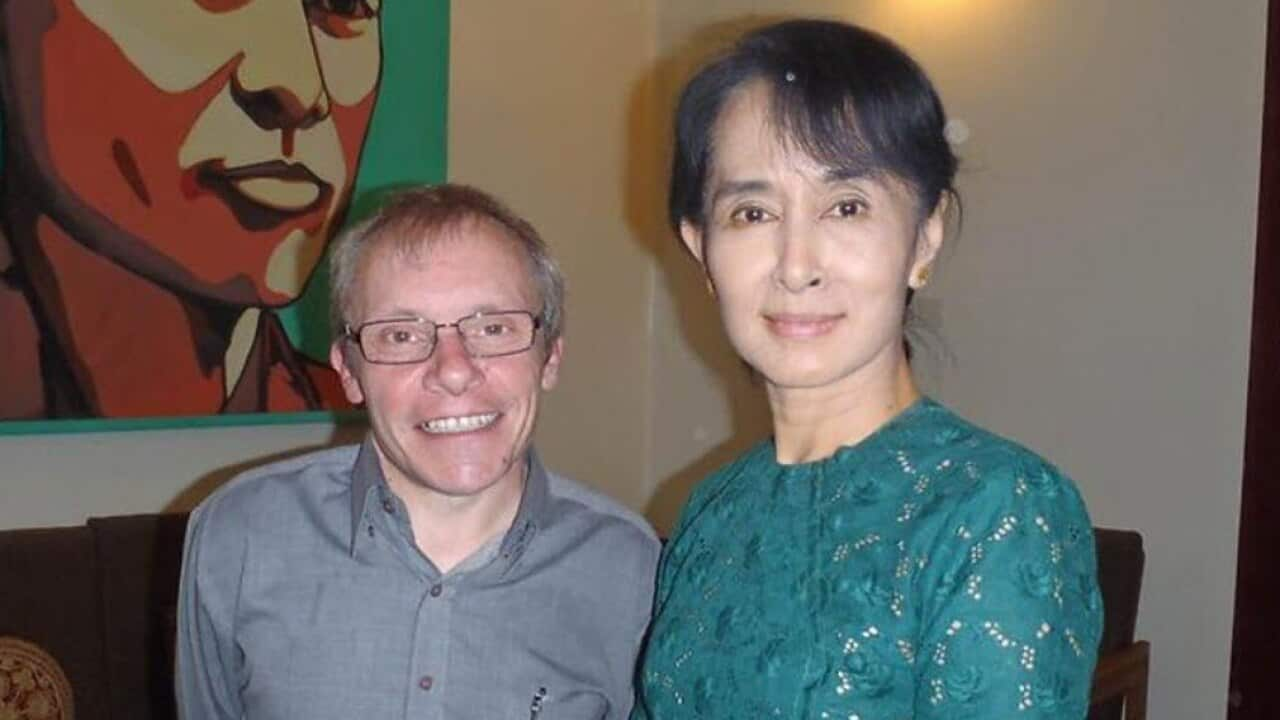Key Points
- Sean Turnell, who is being tried with ousted Myanmar leader Aung San Suu Kyi, testified in court for the first time.
- Mr Turnell, an economist at Sydney's Macquarie University, had served as an adviser to Ms Suu Kyi.
An Australian academic who is being tried with ousted Myanmar leader Aung San Suu Kyi on charges of violating the country's official secrets law has testified in court for the first time, a legal official said.
A legal official familiar with Thursday's proceedings said Sean Turnell denied the allegations against him and pleaded not guilty.
Mr Turnell, an economist at Sydney's Macquarie University, had served as an adviser to Ms Suu Kyi, who was arrested when her elected government was ousted by the army on 1 February last year.
He was arrested five days later and is now being held in the main prison in Naypyitaw, the capital, as is Ms Suu Kyi. Three of Ms Suu Kyi's former cabinet members are being tried with them in a special court at the prison.
Further details of his testimony were not available because his lawyers have been barred from talking about the case. All of the trials involving Ms Suu Kyi have been held under similar restrictions, with the proceedings closed to the media and the public.
The legal official, who spoke on condition of anonymity because he is not authorised to release information, said Mr Turnell and his co-defendants appeared to be in good health.
The exact details of the alleged offence in the case have not been made public, though Myanmar state television, citing government statements, said last year that Mr Turnell had access to "secret state financial information" and had tried to flee the country.
Mr Turnell is also being prosecuted under the immigration law, which carries a punishment of six months to five years imprisonment. Prosecutions under immigration law are common for foreigners being held for other offences.
The judge adjourned Thursday's proceedings until next week, when Ms Suu Kyi is to testify.
The case is one of many faced by Ms Suu Kyi and is widely seen as an effort to discredit her to prevent her return to politics. The charges against her include corruption and election fraud. She has already been convicted of several minor offences.
Last year's military takeover sparked peaceful nationwide street protests that security forces quashed with lethal force, triggering armed resistance that some UN experts have characterised as a civil war.











